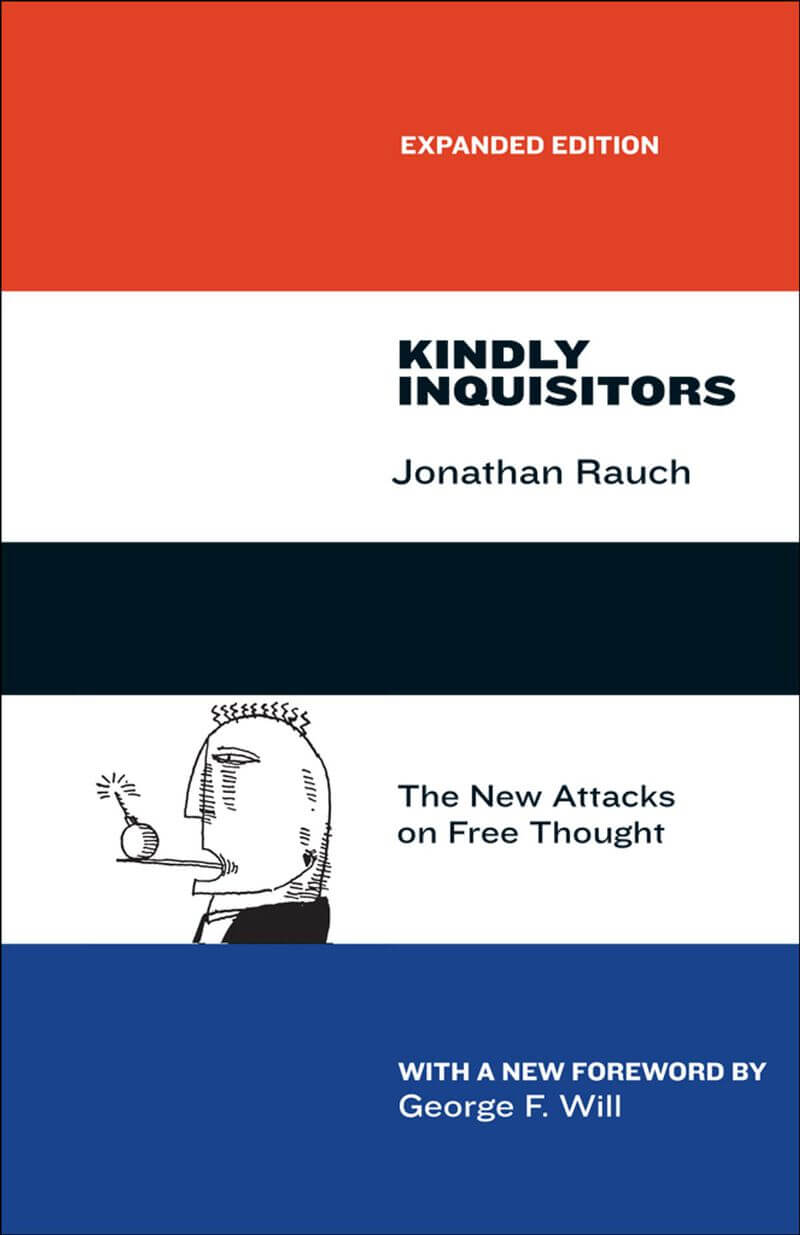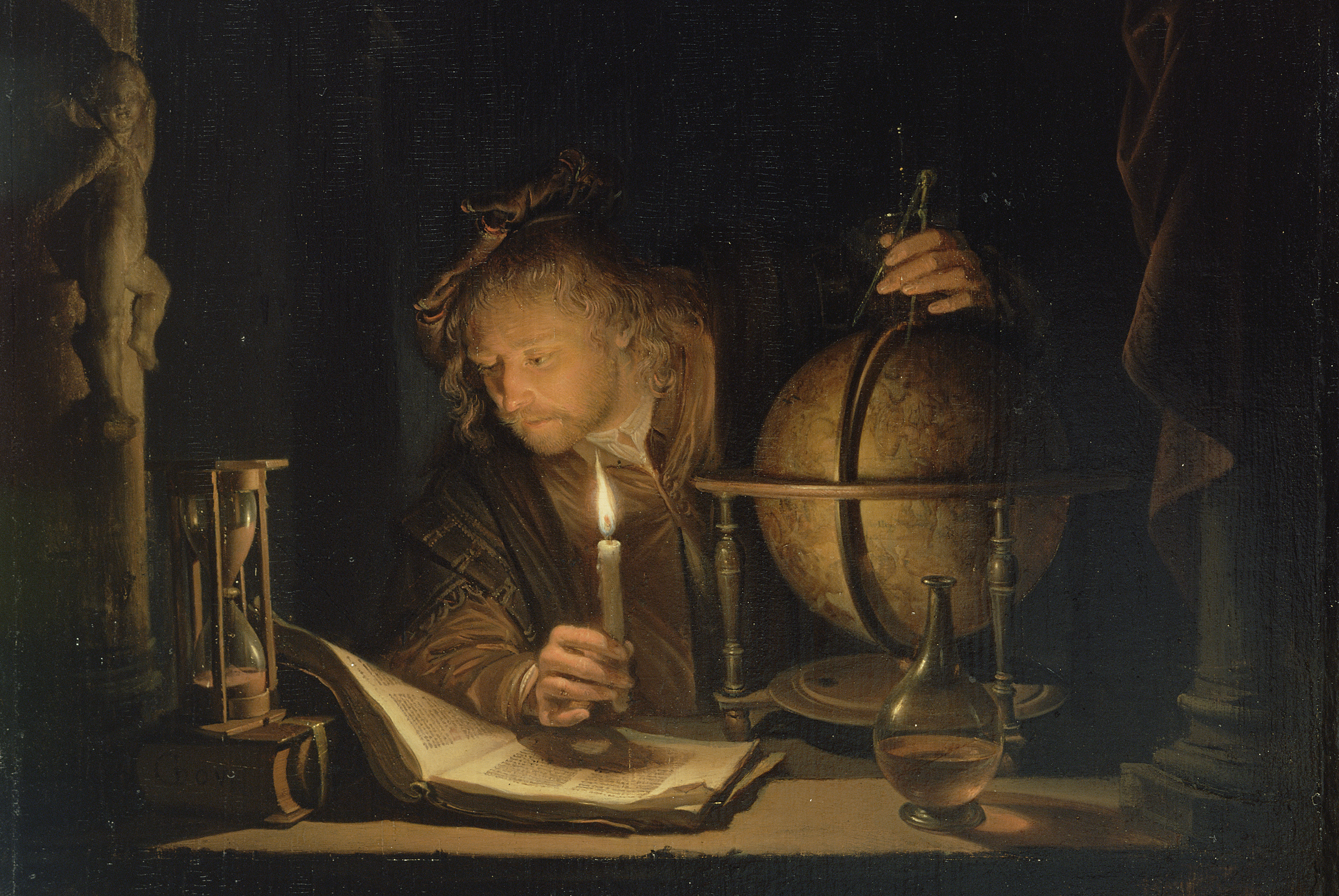Kindly Inquisitors
by Jonathan Rauch
- Nonfiction
- Shelves: politics, sociology, culture, philosophy
- 187 pages
- ISBN: 9780226705767 (Goodreads)
- Format: Kindle
- Buy on Amazon

Summary
In the introduction to the revised edition, George Will calls Jonathan Rauch’s Kindly Inquisitors “sharp as a stiletto”. It’s an on-point description of a precise and short work that mounts one of the best defenses of freedom (and attacks on authoritarianism) I’ve read.
He draws many examples in the book of speech suppression and attempts by one party, leader, or group to put down the ideas of another. It’s not only about freedom of speech, it’s about how we should determine what’s true. The central question is: how do we know what we know?

Rauch gives us a background on several principles for settling differences of opinion — different approaches used either singly or in combination to help us determine what is true, and for deciding how we’ll get there and who will lead us to truth. Each of the principles is given space in the book to explain its proponents’ position and the flaws of each one. For example, Plato was (at least on the surface) an advocate of the egalitarian principle, a philosophy which sounds harmless and actually virtuous on the surface. But here, as with each of the principles, Rauch lays out why they’re pernicious and lead down a path to eventual authoritarian capture.
The book has 2 primary components: Rauch’s critique of authoritarian methods of determining truth, and his description of “liberal science”, the decentralized method of public criticism through which we refine our knowledge via falsification.
We need a system of rules to arriving at consensus agreement without eventually destroying the system itself. Since we live in a complex, diverse world rife with disagreement, it’s important to devise a system that’s resistant to being corrupted by bad actors. Liberal science insists of freedom of speech, freedom of belief, and freedom of expression, but not on freedom of knowledge.
Liberal science rests on a two-pillared foundation:
- No one gets the final say, and
- No one has personal authority
With these two simple rules, the liberal order for sorting fact and fiction gradually evolves (the analogy to Darwinian theory is apt here). Ideas are refined through trial and error, through open disagreement, public criticism, and experiment replication. And because no topic is ever closed off to being challenged in the future (no final say), any idea can be critiqued and disproved, regardless of how long it’s been around. Sometimes the “fittest” ideas for one age lose their adaptation in another.
Overall it’s a razor-sharp work of calm, reasoned rationality, as relevant today as ever.
Key Takeaways
- 5 decision-making principles for sorting truth and fiction in beliefs:
- Fundamentalist principle — Those who know the truth decide who is right
- Simple egalitarian principle — All sincere persons’ beliefs have equal claims to respect
- Radical egalitarian principle — Like the simple egalitarian principle, but the beliefs of persons in historically oppressed classes or groups get special consideration
- Humanitarian principle — Any of the above, but with the condition that the first priority be to cause no hurt
- Liberal principle — Checking of each by each through public criticism is the only legitimate way to decide who is right
- The book argues that the last one is the only one acceptable
- The modern push for authoritarianism has 3 impulses, working together
- Fundamentalists want to protect the truth
- Egalitarians want to help the oppressed
- Humanitarians want to stop verbal violence
- There are 2 “patron saints” of Rauch’s version of liberal science: Karl Popper and Charles Sanders Peirce
- Plato’s push for fundamentalism and egalitarianism (through force) can be traced to from many successor philosophies
- He wanted a return to a pure, tribalist society free from corrupting influences (you can see the roots here that led later to authoritarian movements)
- The state should strictly control progress, led by those with “special knowledge”: the philosophers
- Fundamentalist societies punish intellectualism and institutionalize incuriosity
- Liberal science is founded on 2 required principles
- No one gets the final say
- The skeptical rule
- System may not fix outcomes in advance for good (no final say)
- “Order without authority” is the motto, from Bertrand Russell
- No one has personal authority
- The empirical rule
- Methods used to check statements should be the same regardless of the identity of the checker or the source of the statement
- System may not distinguish between participants (no personal authority)
- “There is nothing like absolute certainty in the whole field of our knowledge.” —Karl Popper
- No one gets the final say
- Liberal science rests on 2 pillars:
- The right to offend in pursuit of truth
- The responsibility to check and be checked
- Other thinkers advocated for similar theories in their own domains, like Charles Darwin and Adam Smith
- Greatest innovation of liberalism (and liberal science) was to set up a system that mimicked evolution
- Liberal systems are decentralized and self-organizing, self-regulating
- Trial and error is unpredictable in the short term, but generates reliable improvement in long term
- Science is not a machine, it’s an ecology
- Popper’s concept of “fallibilism” states that no subject is ever immune to further criticism
- Fallibilism, falsifiability, and error correction are all synonymesque
- By the Humanitarian principle’s rules, science itself is violence; since science rests on the process of continuous criticism
- The fact that you’re oppressed doesn’t make you right
- Basic principle of liberal science: we kill our hypotheses rather than each other
References
- Karl Popper’s The Open Society and its Enemies, 1945
- Charles Sanders Peirce, The Fixation of Belief, 1877
- Interview with Jonathan Rauch at ReasonTV